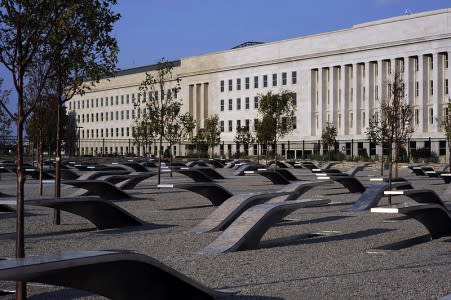The price of privacy in a post-9/11 world
As Americans reflect on the 13th anniversary of the 9/11 terrorist attacks, the debate continues about the proper balance of privacy rights and security concerns needed in an asymmetrical world.
The term “asymmetrical” wasn’t used a lot before September 11, 2001, when the terrorist attacks on New York and Washington, D.C. changed American domestic and foreign policy forever.
But the fallout from these incidents has resulted in an ongoing public debate, which in fact started in the days right after 9/11, about how much the government needs to intrude into citizens’ lives to protect them from unseen harm.
Public polling data from the past 13 years shows that support for privacy restrictions has eroded somewhat, especially after the revelations about the extent of NSA surveillance. But many Americans continue to accept some government surveillance as a price they will pay to forestall more terrorist attacks.
According to data from Pew, in 2001 about 55 percent of Americans believed it was necessary to give up some civil liberties to curb terrorism. By 2011 that number fell to 40 percent. And in a June 2014 survey from Pew, just 23 percent of those polled said Americans “need to be willing to give up privacy and freedom in order to be safe from terrorism.”
But an upcoming poll from the Chicago Council on Global Affairs shows that concerns about the Islamic terror group ISIS could be causing Americans to reconsider the tradeoff of security versus privacy.
The website Fedscoop says some poll data released at a recent conference indicated that about 70 percent of those polled thought it was more important for the federal government to investigate terror threats, even if those efforts imposed on privacy.
A Pew poll from late August showed Americans ranking ISIS as the second-biggest threat to U.S. security, just behind Al-Qaeda. And an NBC/Wall Street Journal poll conducted last week showed that 94 percent of Americans heard about the news of two journalists beheaded by ISIS, the highest news recognition event the NBC/WSJ poll has measured over the past five years.
In the background, the public debate continues over the legality of government actions under the Foreign Intelligence Surveillance Act. FISA and the secret court that settles conflicts related to it date back to the 1970s, and there were certainly privacy controversies about FISA before 2001.
In the post 9/11 years, the Bush and Obama administrations and Congress have argued, with success, that actions taken under the Patriot Act are legal, under the constitutional powers granted to the executive and legislative branches.
For now, Congress isn’t expected to act on a proposed bill that would curtail the federal government’s bulk collection of phone metadata until next year, after mid-term elections are held.
Section 215 of the Patriot Act also is set to expire on June 15, 2015. Section 215 allows the federal government to compel telecommunications companies and Internet service providers to turn over customer records. Leading Senators are expected to demand more openness from the FISA Court as a condition of the Act’s renewal.
How successful those efforts will be remain to be seen, especially if American forces are engaged fighting ISIS in several countries and a large majority of Americans are willing to accept less privacy as a tradeoff against terrorism.
Scott Bomboy is the editor-in-chief of the National Constitution Center.
Recent Stories on Constitution Daily
The Nixon pardon in retrospect, 40 years later
Nonpartisan talk pays off for National Constitution Center


